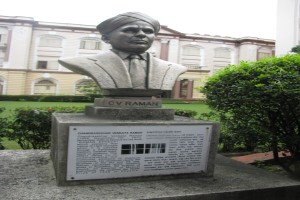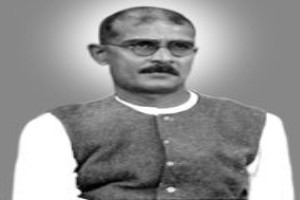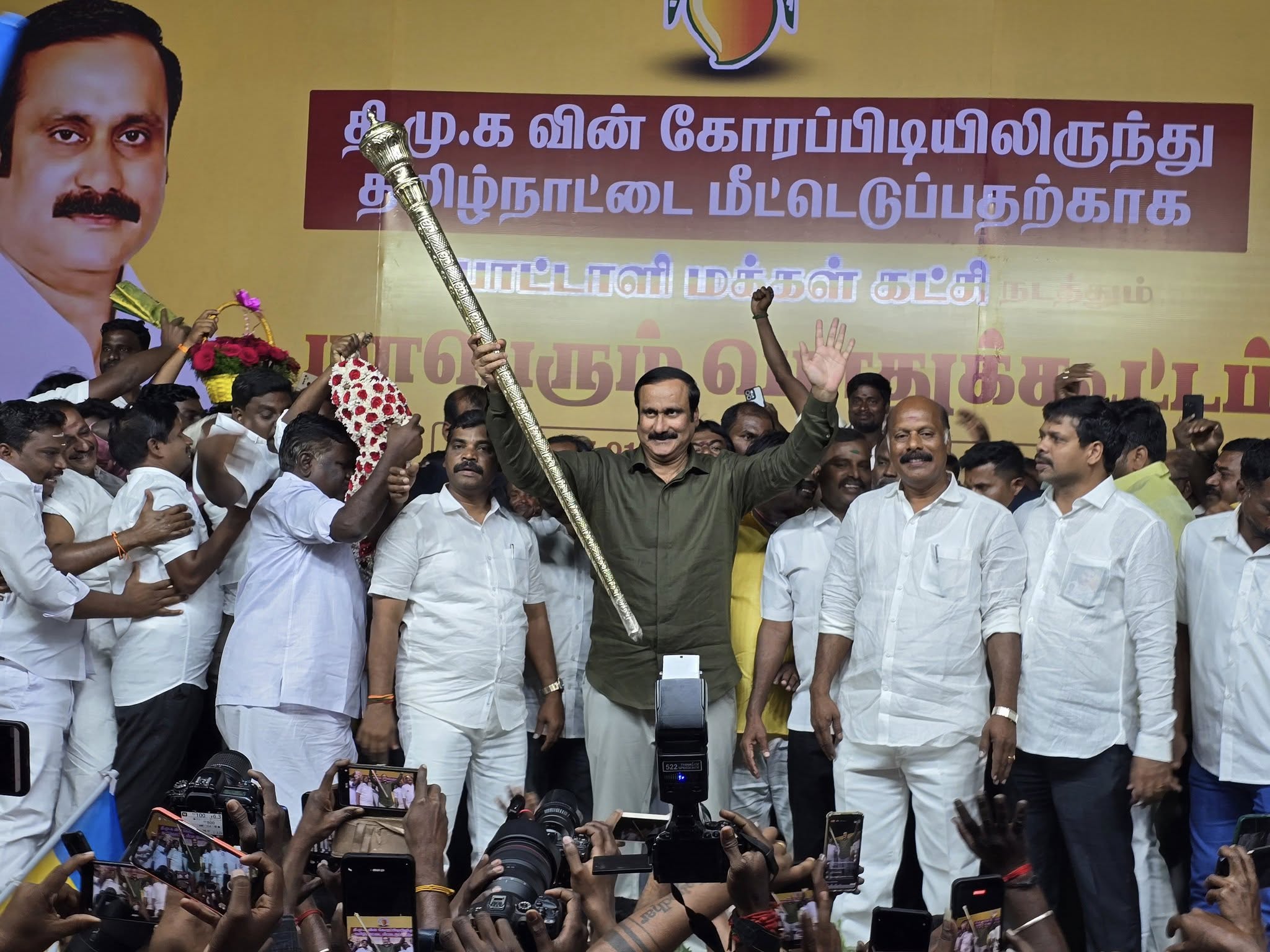
History Recalled
 By Mahadev Desai*
By Mahadev Desai*
(This article was published in Harijan on June 6, 1936)
Lady Raman gave us one afternoon a pleasant surprise by coming in with a considerable party of students from the Science Institute. The young men wanted Gandhiji to go to their Institute. No fear. Why should they not see him at the place of his residence in Bangalore? If he listened to them, he would have to listen to many other requests, he argued in reply. Some of them wanted his autograph and had also thought of presenting him with a purse for the Harijans. “I wish every one of you would want my autograph, so as to swell that purse; but you must do all that where I am staying, but not drag me to the Institute,” he said.
They had brought Lady Raman to plead on their behalf, and if her pleading failed, they had kept Sir CV Raman in reserve! Sir CV Raman, who had come to the Hill with them, had for the moment stayed away! For a moment it seemed, however, that the students had in Lady Raman a bad advocate. She was too considerate to press Gandhiji to go to the Institute in the face of his argument. But where the combined affection of the students and Lady Raman failed, Gandhiji’s own devotion to science carried the day. For at the back of Gandhiji’s reluctance was the ignorance about the Institute to which he was being asked to go. The moment he was told that it was the Science Institute, he capitulated. And lo and behold their rejoicing when he said, “Of course if it is the Science Institute you are talking of, I must make an exception in its favour, provided Sir CV Raman will show me some magic there.”
Also read: History Recalled: Jamnalal Bajaj was gifted with the power to sublimate his sense of possession
And now he proceeded to do a little business. “I have heard,” he said to Lady Raman, “all kinds of good things about you from your husband, but I have to find out how far they are true. He told me the other day that whilst he is absorbed in his science, you find time for all kinds of humanitarian activities.” Before Gandhiji finished the sentence, there was a chorus of endorsement from the students and the visitors from Bangalore who were also sitting there. “Not much, not much” she said, with a modest reserve that seemed to blend beautifully with the determination that anyone could read on that good lady’s brow. “Not as much as I should be doing. But I am certainly interested in Khadi, and Harijan welfare, and social service and things of that kind. You know, Mahatmaji, I have been a spinner since many years ago. Some fifteen years ago I sent you a quantity of my own hand-spun yarn to be woven into cloth and the late Maganlal Gandhi sent the cloth on to me. But my husband had no faith in the wheel then,” she added as the boys roared with laughter. “He would put away my wheel, smash it and break it; but I am glad to tell you that in my own life-time the day has come when he no longer ridicules the wheel. He too believes in it.”
“I am very happy,” said Gandhiji. “Well then I want you to do a little work for me. Did you ever meet the late Kamala Nehru?” “Once or twice, Mahatmaji. But I know the old Mrs. Nehru very well.”
“But you of course know what a good woman Kamala was. You know how she spent herself for the country. But what I prize most of her is not her political contribution but her great spiritual beauty which I should like every man and woman to know.”
“Yes, I know of her services and her moral beauty.”
“Then you must help me in collecting some money for the memorial we are having for her.” And he explained to her the object of the Memorial.
“Oh yes, Mahatmaji,” she said, “don’t I know how you sat down in Calcutta after Deshbandhu Das’ death for a few months and collected as much as 8 lacs? You can certainly collect a lot if you sat down like that here. I had the privilege of helping in that collection. I was in Calcutta then.”
“Oh yes, but I have not the time I had then at my disposal. But you can bring to bear all your influence and collect as much as you can.”
Lady Raman heartily agreed. As this business was going on, in came the magician Sir CV Raman. She was talking in Hindi as he came in. “Now, is that Hindi any good?” he asked jocularly. “Certainly as good as your science”, said Gandhiji. And again the boys roared with laughter. “Oh yes,” spoke the devoted husband in Sir CV Raman, “She has an amazing capacity for picking up languages. She knows Hindi, she knows Bengali better than Hindi.”
“Of course”, said Gandhiji, “she has stayed in Calcutta for some years.”
“Not necessarily for that reason. I too have stayed with her. But I know not a word. And now here she has picked up Kannada and talks it.” Sir Chandrashekhar then began wondering what language could be the language of the masses of India and seemed for a moment to be inclined to the belief that English had the chance. But he said it more perhaps to provoke Gandhiji than seriously.
“Don’t you think it will be a bad day for the many millions of India who know Hindi without learning it to attempt to know English?” said Gandhiji.
And Sir Chandrashekhar immediately said he was glad that Hindi was making rapid strides in South India and added: “I know Hindi too, Mahatmaji. I understand it very well. I learnt it from no less a teacher than (Pandit Madan Mohan) Malaviyaji whose wonderful Hindi I had sometimes to hear for hours when I was in Kashi, and I could not help learning it. But I cannot speak Hindi. It is that conceit, you know that I am full of as much as you.”
And with that conceit, as opposed to vanity which vacuity, he proceeded to tell us what he would show us when we should visit the Institute, how a little paper of ten pages that he had written had taken the world of science by surprise and won him the Nobel Prize, how that was the least part of what he had done, and how the science of music had been lately absorbing most of his time and energy. “I should easily have been a musician physicist, you know,” he said. “How we wish you had been a spinning physicist,” said I. I do not fancy he welcomed the idea, for I think he is for the pursuit of science for the sake of science and he would rebel against an insistence, as in Soviet Russia, on science and scientific research being related to the social life of the nation. And yet, there is no gainsaying the value of that Russian insistence. Science pursued for the sake of science, i.e. divorced from the purpose of humanity, would be as valueless and even harmful as art pursued for the sake of art.
Sir Chandrashekhar introduced a young lady from amongst his students who was probably the first lady student who had decided to devote herself to scientific research. “Try as much as I may, I cannot dissuade her from this pursuit, Mahatmaji,” he said. “That is the result of the revolution you have wrought in the minds of the young people during the past fifteen years. Who but you could have raised a crusade against caste and untouchability and yet commanded the reverence of those who still hug those things?”
This talk would have gone on for hours, had not both Lady and Sir Raman been as jealous of Gandhiji’s time as their own. But they and their students gave us a most pleasant impression of a happy family and left us wondering as to whose was the superior magic touch – Lady Raman’s or Sir CV Raman’s ?
*Mahadev Desai was an eminent freedom fighter and Mahatma Gandhi’s personal secretary; article courtesy his grandson, Nachiketa Desai.





